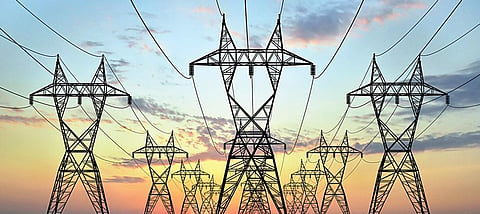

VIJAYAWADA: Amidst mounting challenges posed by the soaring demand for air conditioners and their substantial impact on India’s electricity consumption, Energy Efficiency Services Limited (EESL) has urged the public and stakeholders to adopt energy-efficient practices and support initiatives like the 24 degree Celsius default setting in air conditioners, aiming for a greener and more sustainable India.
The rising demand for air conditioners presents significant challenges for India, affecting the nation’s electricity demand. The Government of India is actively implementing measures to mitigate the impact and address these challenge Driven by over 700 heat waves in the last five decades, causing 17,000 deaths, India faces a surge in air conditioner demand.
With 24 AC units per 100 households, cooling electricity consumption increased by 21 per cent between 2019 and 2022, constituting nearly 10 per cent of total demand. Air conditioners now contribute to about 4.3 per cent of India’s electricity consumption. Anticipating a 20.8 per cent increase in AC usage in 2024, urgent measures are needed to enhance energy efficiency and sustainable practices.
In response, Indian government agencies like Bureau of Energy Efficiency (BEE) and EESL have launched campaigns to counter these challenges. International agency reports predict a nine fold increase in household air conditioner ownership by 2050, potentially surpassing the electricity consumption of the entire African continent.
To address this, the Government of India introduced the Production Linked Incentives (PLI) programme, investing USD 2.5 billion in boosting domestic manufacturing, including solar PV modules. BEE and EESL have played crucial roles, advocating a default setting of 24 degrees Celsius in air conditioners and promoting energy-efficient appliances.
India aims to reduce cooling energy requirements by 25 per cent to 40 per cent and decrease refrigerant demand by 25-30 per cent by 2038, alleviating strain on the country’s electricity grid.In response to escalating electricity demand driven by the surge in air conditioner usage, EESL launched India’s first Super-Efficient Air Conditioner, providing a 50 per cent boost in efficiency compared to 3-star rated ACs and 20 per cent more than 5-star rated ACs. This move, part of EESL’s programme expansion to curb peak power demand, offers consumers a sustainable and affordable cooling solution while significantly reducing electricity bills.